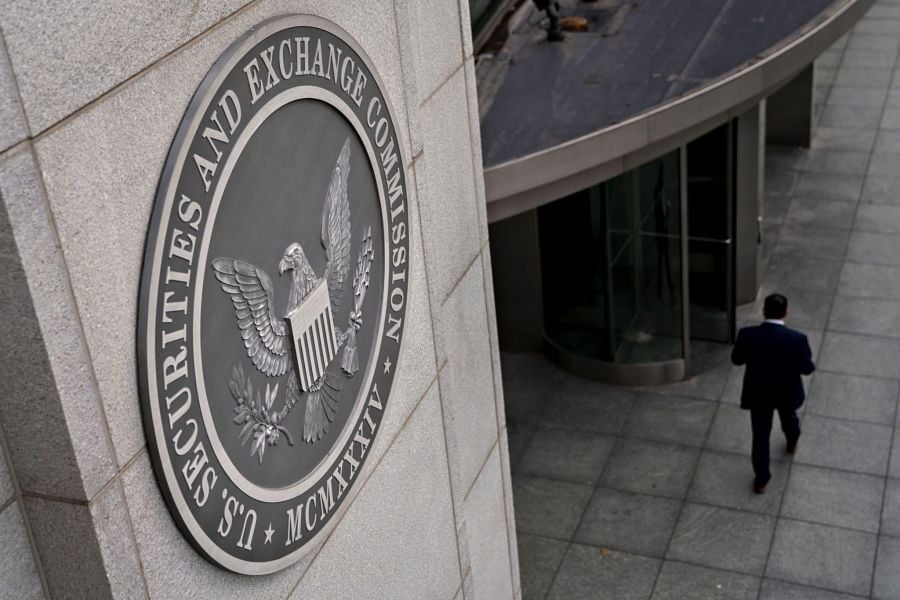

As the coronavirus pandemic continues to wane, investment advisory firms are more likely to have SEC staff show up in person to conduct examinations of their operations.
In March 2020, when the pandemic hit, the agency went to fully remote exams. Last fall, the SEC started to reintroduce onsite exams. Now, the operating status for the Securities and Exchange Commission has changed. Managers returned to the office in January, and the agency staff is set to come back later this month.
“With that context, I can see that we’re going to start conducting more onsite exams over the next couple months,” Natasha Vij Greiner, deputy director of the SEC's Division of Examinations, said Tuesday at the Investment Adviser Association Compliance Conference in Washington.
But the SEC understands that remote work remains a prominent feature in the investment advisory sector, Greiner said. It won’t completely switch back to in-person exams because there may be some days when no one answers a knock on an advisory firm’s door.
“Coming back onsite is something that we’re very interested in doing, but also you’ll see that some of our exams will stay correspondence,” Greiner said. “It will ebb and flow. Taking a hybrid approach is not a bad way to go moving forward.”
Although the agency learned how to be more efficient with exams when it was fully remote during Covid, it realizes something was lost, too, now that it is going back onsite.
“Having the interaction with the registrants is really critical,” Greiner said.
Channeling what may have been some unease from the audience of about 500, IAA general counsel Gail Bernstein asked whether advisors should worry if they’re chosen for an onsite examination.
“Don’t read too much into it,” Greiner said.
The agency has become more aggressive on examinations under Chairman Gary Gensler because Gensler is an aggressive regulator, said Pete Driscoll, a former director of the Division of Examinations.
“That filters down — not directly to examiners — but I think there is less concern [about] the ideas and the approaches they take,” Driscoll, now a partner at PwC, said on a separate IAA panel Tuesday. “That’s resulted in larger periods of time [for exams] and more documents [requested].”
The SEC conducted examinations of about 15% of the approximately 15,500 registered investment advisors during the government's last fiscal year, according to the examination priorities document the agency released last month. That coverage rate is consistent with pre-Covid statistics.
“We’re pretty proud of that, especially with the challenges we and our registrants have faced over the last couple years,” Greiner said.
The issue of oversight of investment advisors came up in a recent meeting of the SEC Investor Advisory Committee. Discussion participants were asked to explore ways that the SEC could improve exam coverage, including such options as using a third-party organization to examine advisors, expanding the Financial Industry Regulatory Authority Inc.’s exam jurisdiction beyond brokers to include advisors, and charging advisors users fees to fund exams.
The IAA advocated for boosting SEC resources.
“Exams are a government function,” IAA CEO Karen Barr said in a separate conference session on Tuesday, relating her IAC testimony. “They should be conducted by the SEC, our primary regulator. We strongly oppose a self-regulatory organization for advisors. We believe the SEC should be given the funding to do the job.”

A new proposal could end the ban on promoting client reviews in states like California and Connecticut, giving state-registered advisors a level playing field with their SEC-registered peers.

Morningstar research data show improved retirement trajectories for self-directors and allocators placed in managed accounts.

Some in the industry say that more UBS financial advisors this year will be heading for the exits.

The Wall Street giant has blasted data middlemen as digital freeloaders, but tech firms and consumer advocates are pushing back.

Research reveals a 4% year-on-year increase in expenses that one in five Americans, including one-quarter of Gen Xers, say they have not planned for.
Orion's Tom Wilson on delivering coordinated, high-touch service in a world where returns alone no longer set you apart.
Barely a decade old, registered index-linked annuities have quickly surged in popularity, thanks to their unique blend of protection and growth potential—an appealing option for investors looking to chart a steadier course through today's choppy market waters, says Myles Lambert, Brighthouse Financial.
